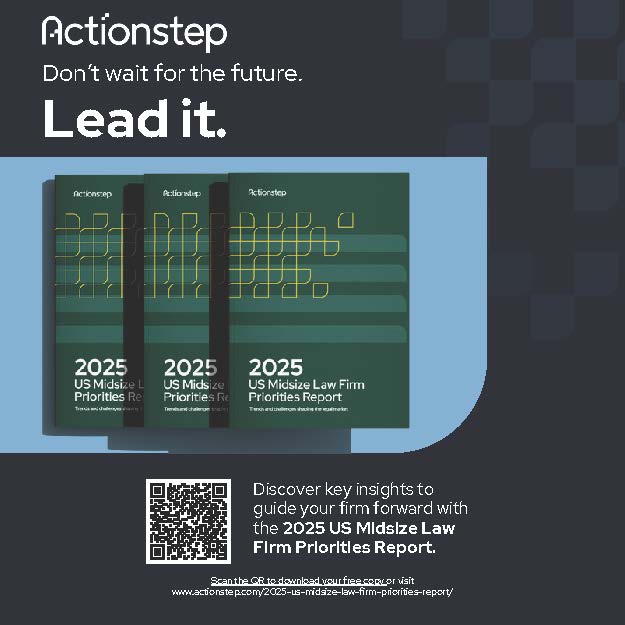Here's What's Really Happening with Contracts
Perhaps the most telling statistic from our platform: More than 90% of contracts that are signed today have zero negotiation. None. They're simply standardized templates that get signed as-is. This represents a fundamental change in business practices.
Companies are increasingly realizing that not every contract needs to be negotiated. If tomorrow you need to sign an agreement with Salesforce, you're likely not going to negotiate their terms. You'll simply sign what they present. The same pattern is repeating across vendor agreements, employment contracts and more.
AI enables legal administrators to quickly determine whether a contract meets their standards and contains any problematic clauses without needing attorney review for every document. It can identify anomalies, flag risks and highlight non-standard language faster and more consistently than human reviewers. Research from Goldman Sachs has found that automating contract management speeds up negotiation cycles by 50% and cuts inaccurate payments by 75-90%.
Beyond Efficiency: The Financial Imperative
For firms focused on billable hours, inefficient contract processes represent a significant drain on profitability. According to research on law firm efficiency, inefficiency in non-billable work directly “corrodes profits and dilutes the most important measure of success for many firms.”
Meanwhile, organizations can lose between 5-40% of value on deals due to inefficient contracting systems. When properly managed by administrators, contract processes become strategic value drivers rather than cost centers.
A Day in Your Future Life
Imagine this scenario in the near future:
A client needs an NDA signed with a new vendor. Instead of drafting a contract from scratch or routing it through multiple attorneys, your AI-powered contract management system handles most of the process autonomously:
It selects the appropriate NDA template based on the vendor's profile.
It pre-fills all relevant information automatically.
It flags any unusual requests or terms that deviate from your standards.
It routes the document for necessary approvals (most of which are also automated).
It tracks the signature process and automatically files the document.
It extracts key dates and obligations for monitoring.
It alerts relevant stakeholders about upcoming deadlines.
You oversee this entire process, but your role is supervisory and strategic rather than administrative. You're managing workflows, designing approval processes and establishing standards — not pushing paper or chasing signatures.
The Implementation Imperative
Despite the transformative potential, I've seen too many organizations fail with AI implementation because they try to revolutionize everything overnight. When firms decide to adopt contract automation software, they often want to automate everything immediately and integrate with all their existing tools. This approach typically leads to disappointment.
The most successful implementations follow a phased approach:
Start small: Focus on one contract category (like NDAs) or one department's contracts.
Focus on tomorrow, not yesterday: Prioritize the contracts you're creating now, not historical documents.
Simplify before automating: Don't automate a broken process; fix it first.
By taking this measured approach, legal administrators can demonstrate quick wins, build organizational buy-in and gradually expand the scope of automation.
What This Means for Your Career
For legal administrators, this shift represents a tremendous opportunity for career advancement. As Wolters Kluwer research indicates, 70% of legal professionals believe AI will impact their department, up from 58% just a few years earlier. Those who master AI-driven contract processes will possess skills in extraordinary demand.
Your role will evolve from managing administrative tasks to designing and overseeing automated processes. This represents a shift upward in the value chain — from execution to strategy. Legal administrators who embrace this transition can position themselves as true business partners rather than support staff.
The Near-Term Future: Five Bold Predictions
Based on what I'm seeing across thousands of companies using our platform, here are five predictions for legal administrators in the coming years:
Contract creation will be largely autonomous. Template selection, clause insertion and even basic negotiation will be handled by AI systems supervised by administrators, not attorneys.
Administrators will become “process designers.” Your primary value will be in designing contract workflows and approval chains, not pushing documents through them.
The paralegal role will transform. As AI handles routine contract work, paralegals will either specialize in complex negotiations or transition to contract process management roles.
Contract data will become a strategic asset. Administrators who can extract and leverage insights from contract repositories will deliver enormous value to their organizations.
Legal spend on outside counsel will decrease dramatically. With AI handling routine contract work, the need for external legal advice will diminish, shifting budgets toward technology managed by administrators.
When properly managed by administrators, contract processes become strategic value drivers rather than cost centers.
Taking Action Now
How can legal administrators prepare for this shift? Start with these steps:
Audit your contract processes. Document your current workflows, identifying bottlenecks and inefficiencies. These are prime candidates for AI automation.
Build cross-functional relationships. Connect with sales, procurement, HR and finance to understand their contract needs and challenges.
Explore AI contract tools. Even if your firm isn't ready to invest, familiarize yourself with the technology through demos and trials of various platforms.
Develop data analysis skills. As contract processes become more automated, the ability to analyze contract data for insights will become increasingly valuable.
Advocate for phased implementation. When your firm is ready to adopt AI contract tools, push for a measured, strategic approach rather than a big bang implementation.
The Human Element Remains Essential
Despite all this automation, contracts remain fundamentally about relationships between people. Technology streamlines the process, but the human elements of understanding, compromise and relationship management can't be replaced.
What AI offers is the opportunity to remove the tedious administrative burden from contracts, allowing legal administrators to focus on the strategic aspects of business relationships. By embracing this technology, you aren't eliminating your job — you're elevating it from tactical to strategic.
The contract management revolution isn't about replacing humans with machines. It's about unleashing human potential by removing administrative barriers. And it's legal administrators, not attorneys, who will lead this transformation.





